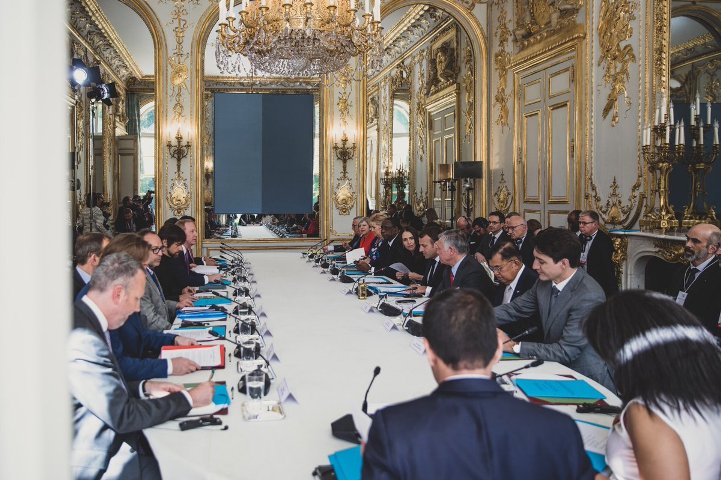Christchurch Call: tech companies adopt pledge to tackle online extremism
“We can be proud of what we have started with the adoption of the Christchurch Call. We’ve taken practical steps to try and stop what we experienced in Christchurch from happening again,” Jacinda Ardern said.

- Country:
- France
- New Zealand
French President Emmanuel Macron and New Zealand Prime Minister Jacinda Ardern have led a group of world leaders, tech companies and organisations to adopt a pledge that seeks to eliminate terrorist and violent extremist content online to stop the internet being used as a tool for terrorists.
The Christchurch Call, named for the New Zealand city in which 51 members of its Muslim community were murdered in a live-streamed terrorist attack on March 15, took place in Paris today and saw leaders from 10 countries and major tech companies commit to a set of collective actions that aim to eliminate terrorism and violent extremist content online.
The Christchurch Call is an action plan that commits government and tech companies to a range of measures, including developing tools to prevent the upload of terrorist and violent extremist content; countering the roots of violent extremism; increasing transparency around the removal and detection of content, and reviewing how companies’ algorithms direct users to violent extremist content.
“We can be proud of what we have started with the adoption of the Christchurch Call. We’ve taken practical steps to try and stop what we experienced in Christchurch from happening again,” Jacinda Ardern said.
“The March 15 attack was shocking in its use of social media as a tool in the act of terror and with the Christchurch Call we have taken a unique approach to solve this problem.”
For the first time Governments and tech companies have jointly agreed to a set of commitments and ongoing collaboration to make the internet safer.
Today is just the first step towards a shared goal of eliminating terrorist content online. But action to achieve that does not end today, we have all agreed to ongoing collaborative work aimed at improving our collective security.
“We owe it to those affected by the attacks in Christchurch, and other attacks in cities and towns around the world where terrorism and violent extremism have struck, to undertake this work.”
The Call acknowledges that government regulation alone will not solve the problem. We need to harness the tech companies’ creativity and technical know how to find solutions while ensuring internet freedoms are maintained and that we protect the internet as a force for good.
President Emmanuel Macron said: “We need to build this new cyberspace, a free, open and secure Internet, which allows everyone to share, learn, innovate, but which also allows us to uphold our values, protect our citizen and empower them"
Prime Minister Ardern said, “From here, I will work alongside others signed up to the Christchurch Call to bring more partners on board, and develop a range of practical initiatives to ensure the pledge we have made today is delivered”.
New Zealand and France will take the Christchurch Call to other countries, organisations and companies, and advance its goals in other fora. We will come together again at UN Leaders’ Week later this year, where we expect some meaningful progress will have been made on this issue.
The Call was adopted at the meeting by France, New Zealand, Canada, Indonesia, Ireland, Jordan, Norway, Senegal, the UK, and the European Commission as well as Amazon, Facebook, Dailymotion, Google, Microsoft, Qwant, Twitter, and YouTube.
Other countries who have adopted the Call but were not at the meeting are Australia, Germany, India, Italy, Japan, the Netherlands, Spain and Sweden.
(With Inputs from New Zealand Government Press Release)
ALSO READ
Israel: Eight arrested for inciting terrorism in Jerusalem
India, Kazakhstan assess security challenges, exchange views on cross-border terrorism in South Asia
Spain's top court summons Catalan separatist leader to testify remotely in terrorism case
Enemies took advantage, terrorism spread whenever there were weak, unstable governments in country: PM Modi in Uttarakhand's Rishikesh
India's policy on dealing with terrorism has changed since 2014, says Jaishankar










